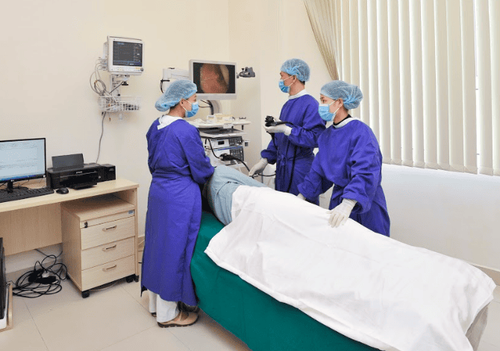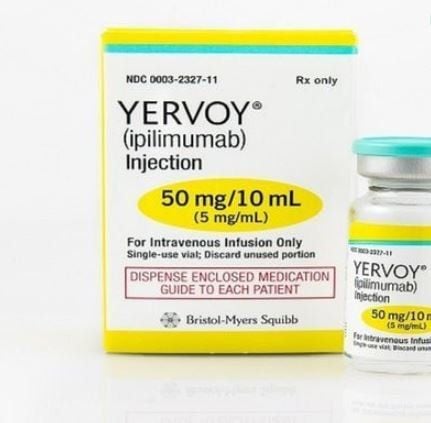This is an automatically translated article.
Article written by Master, Doctor Mai Vien Phuong - Gastroenterologist - Department of Medical Examination & Internal Medicine - Vinmec Central Park International General Hospital.
Colorectal cancer is the third most common cancer in men and women in the United States. It is the second leading cause of death from cancer. And according to many research data, the proportion of young people at risk of colorectal cancer is increasing.
1. What is colorectal cancer?
Colorectal cancer is cancer that begins in the colon (large intestine) or rectum. Both of these organs are located in the lower part of the digestive system. The rectum is located at the end of the colon.The American Cancer Society (ACS) estimates that about 1 in 23 men and 1 in 25 women will develop colorectal cancer in their lifetime.
Doctors can use staging analysis as a guide to find out how far the cancer has spread. It is important for your doctor to know the advanced stage of your cancer so that he can make the best treatment plan for you and estimate the likelihood of future treatment.
Colorectal cancer stage 0 is the earliest stage and stage 4 is the most severe:
Stage 0: Also known as carcinoma in situ. During this stage, the abnormal cells are located only in the inner lining of the colon or rectum. Stage 1: Cancer has invaded the lining of the colon or rectum and may have grown into the muscle layer. It has not spread to nearby lymph nodes or to other parts of the body. Stage 2: Cancer has spread to the wall of the colon or rectum or through the wall to nearby tissues but has not affected the lymph nodes. Stage 3: Cancer has moved to the lymph nodes but not to other parts of the body. Stage 4: Cancer has spread to other distant organs, such as the liver or lungs.
2. Colorectal cancer strikes younger people more
Doctors are seeing more cases of colorectal cancer before age 50, the recommended age to start screening.Colon and rectal cancers are often diseases that doctors focus on in patients over 50, but recent trends show an increase in those cancers in young adults in their 20s. Experts, there are many factors that have led to this increase.
Dr. Allen Kamrava, a private colorectal surgeon in Los Angeles, said laparoscopic rectal bleeding is much easier now than it was years ago. Patients with rectal bleeding, especially those under the age of 40, usually have hemorrhoids rather than rectal cancer. However, that's also when the doctor should think about the worse possibility.
Kamrava tells Healthline: “The worst thing that can be done to a young patient is their cancer diagnosis late. I have seen some young patients - 40 years or younger - who present with bleeding from hemorrhoids and receive the same treatment as hemorrhoids. Finally, when the bleeding didn't stop, they had to have an endoscopy and found that the cancer was too advanced."

3. Higher risk but still low incidence
A review of 35 years of data on colon and rectal cancer in the United States found that incidence rates have decreased since 1998. However, in patients aged 20 to 34 years, cancer rates colon is increasing.According to a study published in the journal JAMA Surgery, if this trend continues, by 2030, the rate of colon cancer will increase by 90% and rectal cancer by 124% in people from 20 to 34 years old. For 35- to 49-year-olds, the rate is expected to rise to 46 percent.
Although the percentage is alarming, in reality, the number is still low. Of the cases diagnosed during the JAMA study period, only 1% occurred in people under the age of 35, and 6.8% were between the ages of 35 and 49. That means about 9 out of 10 cases. out of 10 people diagnosed are 50 years of age or older.
Researchers have yet to identify the cause of the increase in the incidence of colorectal cancer in young people. It has led some experts to question when to begin routine screening for people with risk factors for colorectal cancer.
4. Several risk factors promote the role of early screening
The typical American diet and lifestyle may increase the risk of colon or rectal cancer. Such as a diet high in red or processed meat and fried foods but low in vegetables. Obesity, inactivity, smoking, and heavy alcohol use are also risk factors for colorectal cancer and other cancers.People with type 2 diabetes are also at increased risk of colorectal cancer and will often get sicker after being diagnosed.
Age is not the only uncontrollable factor. African-Americans have the highest rates of colorectal cancer of all racial groups in the United States, and it's not clear why. This has led groups like the American Society of Gastroenterology to suggest that African Americans be screened starting at age 45, not 50.

5. Heredity is one of the risk factors that make young people more likely to get colorectal cancer
Besides race, genetics plays a large role in colorectal cancer cases in younger patients.According to the American Cancer Society, people with a personal history of inflammatory bowel disease, a family history of colorectal cancer, or inherited gene defects such as familial adenomatous polyposis are at increased risk. higher incidence of colorectal cancer.
“We have all seen colon cancer in patients between the ages of 20 and 40 years old. In general, we see more familial colon cancer in younger patients,” said Dr. Kamrava. “Just because a family member has colon cancer does not mean you are at higher risk. It depends on the type, type of cancer, age of onset, etc. But if you have a family history of colon cancer it is important for your doctor to know."
This trend is causing doctors to change what tests they order for suspected cases of colorectal cancer. Inherited colon cancer, Kamrava says, is more likely to occur on the right side of the colon, where a colonoscopy would miss it (sigmoidoscopy only evaluates the left side of the colon and rectal lesions, therefore, damage to the right colon would not be detected). As endoscopy becomes more common, more and more right-sided lesions are detected. As a result, more young patients are being diagnosed.
Colorectal cancer is completely curable if detected early, so screening for early detection of colorectal cancer is very important. When there are risk factors or suspicious symptoms, you should go to hospitals and specialized medical centers for screening to help detect colorectal cancer early.
Please dial HOTLINE for more information or register for an appointment HERE. Download MyVinmec app to make appointments faster and to manage your bookings easily.














